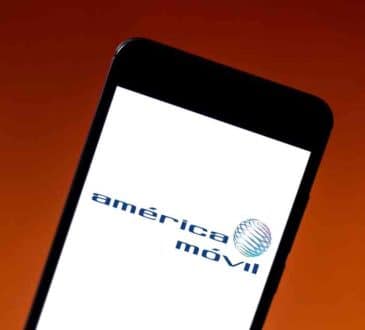A Leader’s Secret Communication Weapon

All leaders must cultivate their powers of persuasion. Communication prowess consistently rises to the surface as a foundation skill. After all, it is only through the belief and efforts of others that the vision of the leader becomes reality.
The pathway to persuasion takes many forms. Sometimes you will use words to gently guide others to a new way of seeing the world. Sometimes you will tell stories to encourage personal connection. And sometimes you will build a case with reason and evidence to generate credibility.
But what will you do when you are faced with a situation where drastic change is required?
Is it possible to move people to action through the power of your words?
Unleashing the power of force in a presentation can be the turning point. You have heard and will remember the impact of a verbal charge – one that inspires belief AND leads to action – long after the applause has faded.
Several factors must align within just the right set of circumstances to pull it off. The effects can be explosive – sometimes revolutionary. It’s not about moving the needle it’s about shattering the whole measuring device.
Can you sense the power in The Man in the Arena, from Theodore Roosevelt;
It is not the critic who counts; not the man who points out how the strong man stumbles, or where the doer of deeds could have done them better. The credit belongs to the man who is actually in the arena, whose face is marred by dust and sweat and blood; who strives valiantly; who errs, who comes short again and again; who spends himself if a worthy cause; who at the best knows in the end the triumph of high achievement, and who at the worst, if he fails, at least fails while daring greatly so that his place shall never be with those cold and timid souls who neither know victory or defeat.
An unmistakable call to action in two punchy sentences. We hear echoes of the battlefield in sweat & blood, triumph, daring greatly and ultimately, victory. From this passage, we cannot tell what we are meant to be fighting for, and yet we are stirred to fight. Such is the power of the forceful eloquence.
The Conditions Must Be Right
The rhetorical use of force, as in the physical world, must be governed by restraint. When overplayed the speaker is bombastic tending to ridiculous. The measure of any great communication is the artful dynamic between speaker and audience in the right context. If the leader is able to read the room – as well as what is happening outside the room – and strike just the right chord, then the tinder box will explode.
Churchill’s famous ‘we shall fight them on the beaches’ was shot through with repetition and hyperbole – and it worked. His ability to glean the collective emotional state of Britain at that particular point of WW2 was the precipitous magic of the speech.
Paradoxically, the impact of forceful communication is amplified if this style is not that usually adopted by the speaker. Take Julia Gillard’s famous misogyny speech in the Australian Parliament in 2012. Here, Gillard (previous Prime Minister of Australia) let loose a verbal assault that was all the more powerful for its lack of consistency with her normal restrained, slow, considered style.
On this day she was emphatic, she raised her chin, she gestured directly, and she spoke over the jeers in the house. She eye-balled her opponent and told him directly he needs a mirror. Everything in her manner, content, and delivery said enough.
Conviction
The belief of the speaker is essential. This is not a message that can be delivered by your deputy. You can’t outsource a call to arms. It must be delivered in the first person.
Your audience will need to observe the congruence between the emotions that you express and the meaning behind the words. It is in these rare moments that followers are created, and they follow the person – not the organization and certainly not the job title.
Balance Intensity with Reserve
The unspoken power of the forceful speech is that the leader is so moved by their belief in the mission that we see the raw emotion. There might be a truncation of the movement, slight widening of the eyes and an increase in volume. There will be other barely recognizable signals of the emotional tension the speaker is experiencing. In turn, we see the cost of the conviction translated from the emotional to the physical tension.
The intensity is evident beyond the observable elements – pace, tone, volume, gesture. It is all of that, but it is more than that.
Paradoxically, the practiced leader knows how to restrain their power. Like a martial arts master, they demonstrate control in their manner and choice of words that instills a belief they are also in control of the situation, no matter how fired up they might be.
From Resolution to Action
Once the emotional trigger has been activated, the audience is open to change. Here the leader must demonstrate that they have thought this through. They have a plan and they are personally invested. We must hear full commitment and believe that we can expect strong leadership from the front.
Again, restraint is key. Nothing de-motivates a team faster than repeated commitments with little action.
A leader can activate the crowd by taking action themselves. What is the first step? How can the leader show they have skin in the game? A tangible promise will catalyze the crowd. Never has the world witnessed a more powerful demonstration of commitment than with Nelson Mandela’s now-famous call to arms. …It is an ideal for which I hope to live for and to see realized. But my lord, if it needs to be, it is an ideal for which I am prepared to die. (1964)
These words transported Mandela beyond activist. Beyond speaker. This was the moment of true leadership and marked the leap from words to action. It would be years before the ideal would indeed become reality and a great deal of suffering would ensue. But these words would help to fortify the conviction of Mandela’s followers for decades.
Fan the Flames
If successful, the forceful speech is the spark that ignites a group. The audience becomes your followers. They will be inspired to take action if they observe in you, behaviors that are congruent with the intent of your messages. Whilst you will not be able to maintain the fever pitch, you must continue to act and communicate in a manner that matches the conviction of your original message. Your role will shift slightly and you will now tend the fire.
So, what can you do?
When you find yourself in that rare but critical point where drastic change is needed and you sense the receptivity of your audience it is time to unleash your secret weapon.
Take a chance, be forceful.
Have you read?
# Best Ways to Get Your Grades Up In Business School.
# 10 Rarest Foods In The World.
# How To Choose Perfect Backpack For Trekking?
# Top 5 College Fashion Hacks for Men.
# Can You Be Caught Between Two Tax Authorities When Operating In The US And Abroad by Dr. Shan Nair.
Add CEOWORLD magazine to your Google News feed.
Follow CEOWORLD magazine headlines on: Google News, LinkedIn, Twitter, and Facebook.
This report/news/ranking/statistics has been prepared only for general guidance on matters of interest and does not constitute professional advice. You should not act upon the information contained in this publication without obtaining specific professional advice. No representation or warranty (express or implied) is given as to the accuracy or completeness of the information contained in this publication, and, to the extent permitted by law, CEOWORLD magazine does not accept or assume any liability, responsibility or duty of care for any consequences of you or anyone else acting, or refraining to act, in reliance on the information contained in this publication or for any decision based on it.
Copyright 2024 The CEOWORLD magazine. All rights reserved. This material (and any extract from it) must not be copied, redistributed or placed on any website, without CEOWORLD magazine' prior written consent. For media queries, please contact: info@ceoworld.biz
SUBSCRIBE NEWSLETTER








